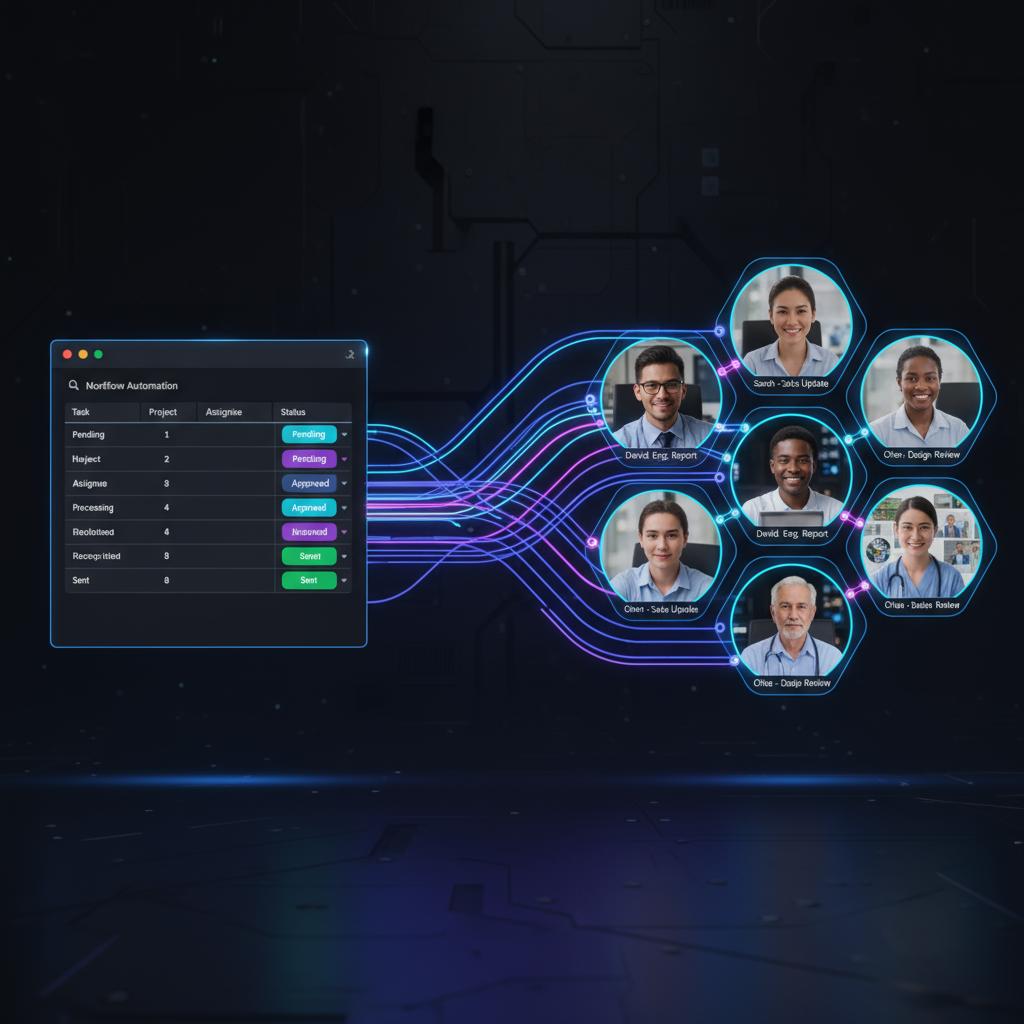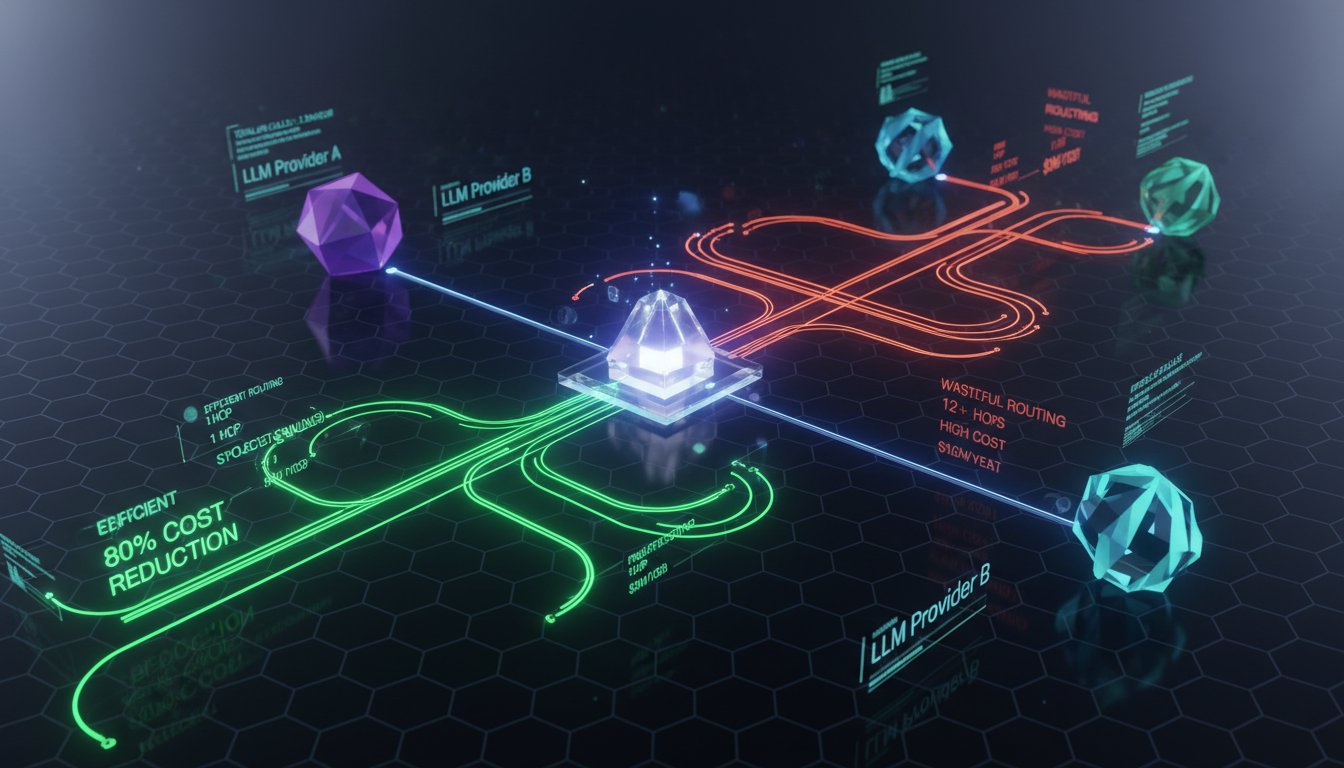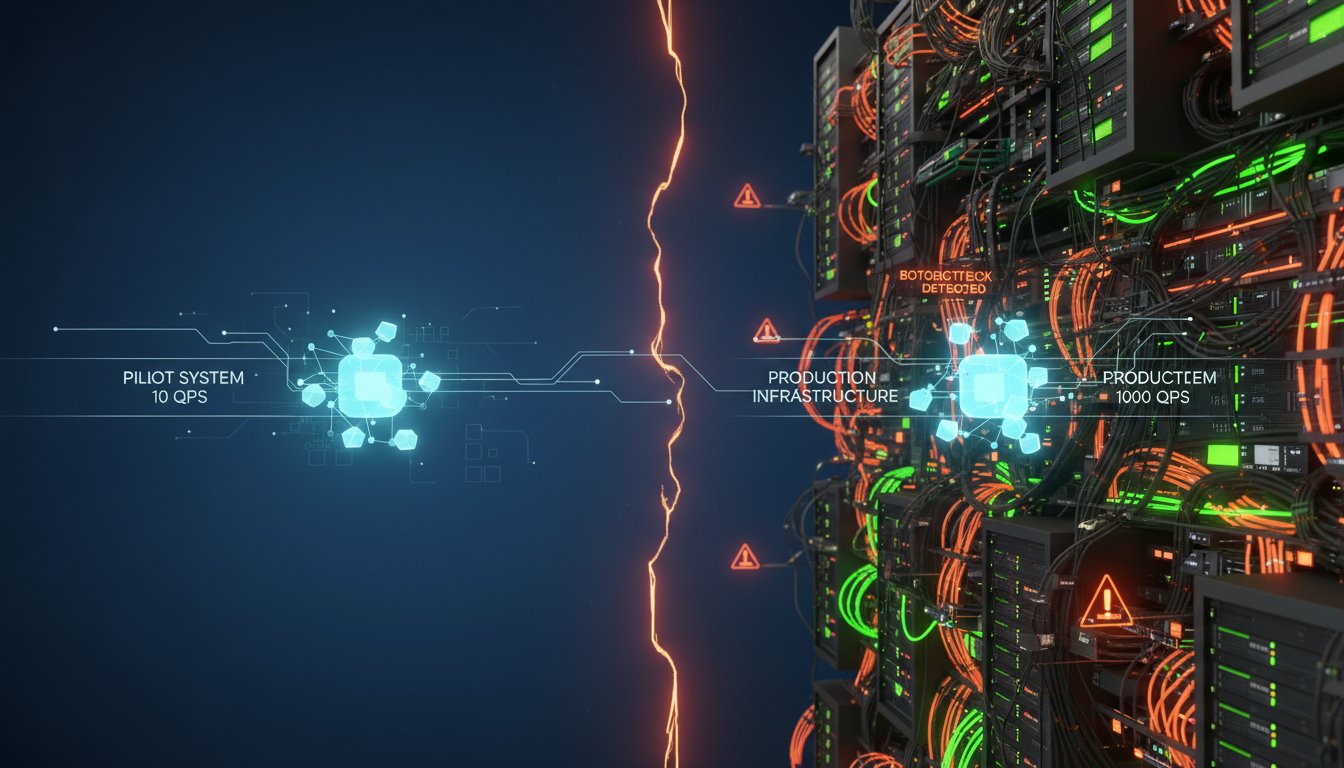Imagine it’s Monday morning. Sarah, a senior project manager at a bustling tech firm, stares at her screen. Her calendar is a relentless block of back-to-back meetings, all dedicated to one thing: status updates. She spends hours each week compiling data from Notion, drafting emails, and preparing slide decks, all to answer the same fundamental questions from different stakeholders. The process is a drain on her time and, frankly, not very effective. Key details get lost in long email chains, and by the time she presents the weekly report, the information is already slightly out of date. Sarah knows there has to be a better way. What if she could flip a switch and instantly transform her structured project data into engaging, personalized video summaries delivered directly to each stakeholder?
The challenge Sarah faces is universal in modern enterprise environments. Project communication is fragmented and inefficient. While tools like Notion have become the single source of truth for project data, the final step—communicating that data—remains a manual, time-consuming bottleneck. Text-based updates in emails and Slack channels fight for attention in a sea of notifications, often leading to low engagement and misaligned teams. According to research, the average professional spends nearly 3 hours a day on email alone. This communication overhead not only stifles productivity but also fails to convey the nuance and importance of project milestones, leading to disengaged stakeholders and delayed decision-making.
The solution lies at the intersection of structured data, automation, and generative AI. By connecting your Notion database to cutting-edge AI video and voice generation platforms, you can build a fully automated pipeline that creates and distributes personalized project updates. This guide will introduce a powerful trio of tools: Notion as the structured data hub, HeyGen for creating lifelike AI avatar videos, and ElevenLabs for cloning a consistent and professional brand voice. This combination moves beyond static reports, creating dynamic, on-demand video updates that capture attention and deliver information with unparalleled impact.
This article provides a comprehensive, step-by-step technical walkthrough for building this exact system. We will guide you through configuring your Notion database, creating a dynamic video template in HeyGen, cloning a custom voice with ElevenLabs, and knitting it all together with a no-code automation platform like Zapier. You will learn how to turn a simple checkbox tick in Notion into a fully produced, personalized video update delivered directly to your stakeholders. Prepare to leave the world of manual reporting behind and step into the future of automated, AI-driven project communication.
The Modern Project Management Stack: Notion, AI Video, and Automation
To build a truly efficient communication workflow, you need a stack that leverages the strengths of best-in-class tools. The goal isn’t just to automate tasks but to fundamentally upgrade the way information is delivered. By combining a structured knowledge base with generative AI, you create a system that is more than the sum of its parts.
Why Notion is the Ideal “Single Source of Truth”
Notion has evolved far beyond a simple note-taking app; it’s a powerful, flexible workspace where teams can build custom databases, wikis, and project trackers. Its true power for automation lies in its structured nature. Every entry in a Notion database is a collection of organized properties—text, numbers, dates, tags, and more.
This structured data is machine-readable and accessible via Notion’s API, making it the perfect foundation for automated workflows. Unlike unstructured documents, a Notion database provides clean, predictable inputs that an AI system can easily parse and use to populate templates. This ensures that the information fueling your automated videos is always accurate and drawn directly from the source of truth your team already uses.
The Power of Generative AI Video for Stakeholder Engagement
Text is easy to ignore, but video demands attention. Research consistently shows that video content drives significantly higher engagement and information retention. In fact, studies suggest viewers retain up to 95% of a message when they watch it in a video, compared to just 10% when reading it in text. This is where HeyGen enters the picture.
HeyGen is a leading platform for creating studio-quality videos with AI avatars and voices. It allows you to produce professional-looking video content without cameras, microphones, or actors. By creating a dynamic video template in HeyGen, you can programmatically insert project-specific details into the video, making each update feel personal and relevant. This transforms a generic status report into a compelling, engaging communication asset.
Voice Cloning for Brand Consistency with ElevenLabs
The final layer of polish is audio. A generic, robotic text-to-speech voice can feel jarring and undermine the professionalism of your video update. Brand consistency is key, and that extends to the voice representing your company or project. ElevenLabs offers state-of-the-art voice synthesis and voice cloning technology.
With just a few minutes of clean audio, you can clone the voice of a key leader—like the CEO, department head, or project lead—and use it to narrate your automated updates. This adds a powerful layer of authenticity and authority. When a stakeholder receives a video update narrated in a familiar, trusted voice, it builds a stronger connection and reinforces the importance of the message.
Prerequisites: Setting Up Your Tools for Integration
Before you can build the automation, you need to prepare your tools. This initial setup is crucial for ensuring a smooth and successful integration. Each platform needs to be configured to send and receive the right data.
Configuring Your Notion Database
Your Notion database is the trigger and the data source for the entire workflow. Structure it with clear, specific properties that will map to your video script. For a project-tracking database, consider adding the following properties (columns):
- Project Name (Title): The name of the project.
- Update Summary (Text): A 2-3 sentence summary of the latest progress or status.
- Status (Select/Tag): A tag indicating the current project status (e.g., On Track, At Risk, Completed).
- Stakeholder Email (Email): The email address where the video update should be sent.
- Generate Video Update (Checkbox): A simple checkbox that will act as the trigger for the automation.
This clean structure ensures your automation tool can easily pull the correct information for each video.
Creating Your HeyGen Video Template
Next, log in to HeyGen and design the visual foundation for your videos. Create a new video and choose a pre-made avatar or generate your own. In the video editor, add text elements that will serve as placeholders for your dynamic content from Notion.
For each placeholder, use the double-bracket syntax, like {{projectName}} and {{updateSummary}}. You won’t populate these directly in HeyGen; instead, the automation will feed data into these variables later. Position these text elements, style your background, and save this video as a template. This template will be the blueprint for every automated video you generate.
Cloning a Voice with ElevenLabs
Now, let’s create your unique brand voice. Head over to ElevenLabs and navigate to the VoiceLab section. Using their Instant Voice Cloning feature, you can upload a few minutes of high-quality, clear audio of the desired voice (without background noise). ElevenLabs will process this audio and create a synthetic clone that you can use via their API.
Once the voice is cloned, give it a recognizable name and locate its unique Voice ID. You will also need your ElevenLabs API Key from your profile settings. Keep both of these handy, as they are required to authenticate and select the correct voice within your automation workflow. Ready to create a voice that truly represents your brand? Click here to sign up for ElevenLabs.
Choosing Your Automation Platform (Zapier/Make)
An automation platform acts as the central nervous system, connecting Notion, ElevenLabs, and HeyGen. Zapier and Make.com are two leading no-code platforms that are perfect for this task. They allow you to create workflows (called “Zaps” in Zapier) that trigger a series of actions across different apps.
For this guide, we will use Zapier due to its straightforward user interface, but the same logical steps can be easily replicated in Make.com or other similar platforms.
The Step-by-Step Walkthrough: Building the Automation Workflow in Zapier
With your tools prepared, it’s time to build the automation. This workflow will listen for changes in Notion, generate a narrated video, and deliver it to the right person.
Step 1: The Trigger – Updated Database Item in Notion
In Zapier, create a new Zap and select “Notion” as the trigger app. For the event, choose “Updated Database Item.” Connect your Notion account and select the project database you configured earlier. To ensure the Zap only runs when you want it to, set it to trigger specifically when the “Generate Video Update” checkbox is checked. This gives you manual control over which updates get turned into videos.
Step 2: The Action – Crafting the Script and Generating Audio with ElevenLabs
Next, we’ll generate the audio narration. Add a new action step and select “ElevenLabs.” Choose the “Text-to-Speech” action. In the setup fields:
- Connect your ElevenLabs account using your API Key.
- In the “Voice” field, select your previously cloned voice using its Voice ID.
- In the “Text” field, you will dynamically construct the script using data from the Notion trigger. Map the properties from Step 1 to create your narration. For example: “Hello. Here is a quick update on the {{Step 1: Project Name}} project. The current status is {{Step 1: Status}}. The latest summary is as follows: {{Step 1: Update Summary}}.”
When this step runs, ElevenLabs will generate an MP3 file of the narration and provide a public URL to it.
Step 3: The Action – Generating the Video in HeyGen
Now it’s time to bring the visuals and audio together. Add another action step and select “HeyGen.” Choose the “Create Video from Template” action.
- Connect your HeyGen account using its API Key.
- Select the video template you created earlier.
- You will see fields corresponding to the placeholder variables in your template (e.g.,
projectName). Map the data from the Notion trigger (Step 1) to these fields. - Crucially, find the field for the audio input. In this field, you will insert the audio URL generated by ElevenLabs in the previous step (Step 2).
This tells HeyGen to create a new video using your template, populated with project-specific text, and narrated with your custom-cloned voice. To start building your video templates, try HeyGen for free now.
Step 4: The Delivery – Distributing the Video
Once HeyGen finishes rendering the video (which may take a minute or two), the Zap will receive a URL for the final video. The last step is to deliver it. Add a final action step for delivery.
- Email: Add a “Gmail” or “Outlook” action. In the “To” field, map the “Stakeholder Email” from the Notion trigger. In the body, write a brief message and include the video URL from the HeyGen step.
- Slack: Alternatively, add a “Slack” action to post the video link to a specific channel or as a direct message, tagging relevant team members.
Step 5: Testing and Deployment
Before activating your Zap, run a test with sample data from Notion. Check a box in your database and watch the workflow execute. Verify that the audio is correct, the video generates properly, and the final delivery is successful. Once you’ve confirmed everything works as expected, you can turn on your Zap and let it run.
Advanced Applications and Scaling for the Enterprise
This workflow is a powerful starting point, but it can be enhanced further to meet complex enterprise needs, fully embracing the capabilities of RAG.
Integrating RAG for Dynamic Script Generation
For even more sophisticated updates, you can replace the simple templated script with one generated by a Retrieval-Augmented Generation (RAG) system. Instead of just pulling the update summary, the trigger in Notion could initiate a query to a larger knowledge base (perhaps your entire company wiki, also stored in Notion). The RAG system could retrieve relevant context, such as how this project update impacts quarterly goals or relates to other dependent projects, and then use an LLM to generate a far more insightful and dynamic script for ElevenLabs to narrate.
Multi-Language Updates with ElevenLabs
For global teams, communication shouldn’t be limited to one language. By leveraging ElevenLabs’ multilingual capabilities, you can enhance your Notion database with a “Language” property. Your automation can then use this property to select the appropriate voice model and generate the script in the stakeholder’s preferred language, making your updates truly accessible and inclusive.
Error Handling and Monitoring
In a production environment, building robust workflows is essential. Add paths in your Zapier or Make.com automation to handle potential failures. For instance, if the HeyGen video generation fails, the workflow could automatically send a notification to a specific person or channel for manual review, ensuring no update is ever missed due to a technical glitch.
By laying this automated foundation, you’ve built a scalable system that transforms routine data into compelling communication. Sarah, our project manager, no longer spends her Mondays drowning in manual reports. Instead, her stakeholders receive timely, personalized video summaries narrated in the CEO’s voice, all triggered by a single click in a tool they already use. The communication bottleneck is gone, replaced by an efficient, engaging, and impactful flow of information.
This is just one example of how generative AI and smart automation can revolutionize enterprise workflows. The power to eliminate manual toil and elevate your team’s communication is at your fingertips. To get started with the essential tools discussed today, you can explore HeyGen’s AI video platform and ElevenLabs’ cutting-edge voice synthesis. Try HeyGen for free now to create your first AI video template, and click here to sign up for ElevenLabs to bring a unique, professional voice to your projects.




